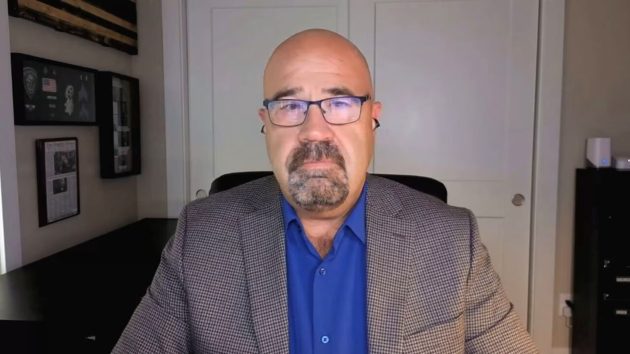(LEWISTON, Maine) — One of Maine’s largest abortion care providers said it will have to dramatically cut services after a federal judge ruled earlier this week that the Trump administration is not required to restore Medicaid funding.
Under H.R.1 — the mega-bill that President Donald Trump signed into law last month — family planning and abortion providers are not allowed to collect Medicaid funding if they received at least $800,000 in Medicaid reimbursements in 2023.
The Center for Reproductive Rights (CRR) sued the Trump administration on behalf of Maine Family Planning — the largest network of sexual and reproductive health care clinics in the state — arguing that the provision violates the Equal Protection clause under the Fourteenth Amendment of the Constitution.
However, Judge Lance Walker ruled that because Roe v. Wade was overruled in June 2022, ending the constitutional right to abortion, Congress can “withhold federal funds and otherwise disassociate from conduct that is not enshrined.”
Medicaid funds are not used to cover abortion costs in most circumstances, but they are used to pay for other health care costs. George Hill, president and CEO of Maine Family Planning, said the network will have to cut services or drastically reduce the number of patients they can see.
“Right now, we’re not accepting new Medicaid-insured patients for primary care,” he told ABC News. “We are going to have to stop providing primary care to Medicaid enrolled patients, probably by the end of September.”
Hill said Maine Family Planning is not billing Medicaid for current Medicaid patients, but added that continuing to do so is likely not a sustainable option.
“It’s costing us, in lost revenue, about $165,000 a month,” Hill said. “That clearly is unsustainable. We’re spending a good deal of time getting the word out about the quality of the care that we provide, why it’s necessary in the areas that we provide, to a wide range of private donors. But … it’s not sustainable over the long term.”
Maine Family Planning has been receiving about $1.9 million a year in reimbursements, which makes up about 20% of its budget, Olivia Pennington, director of advocacy and community engagement at Maine Family Planning, told ABC News.
Pennington said the provision in the mega-bill was intended to prevent federal dollars from reaching Planned Parenthood, the largest abortion provider in the U.S., but the Maine agency appeared to be caught in the crosshairs.
“We knew there was a chance we were going to get caught up in this attempt to defund Planned Parenthood,” she told ABC News. “We weren’t sure exactly what that was going to look like, but July 4, when that bill was signed, we were acutely aware that, as of that day, we had to stop billing MaineCare, which is what we call Medicaid here in the state of Maine.”
Pennington said that although Maine Family Planning does provide abortion care, the clinics also provide contraceptive care, cancer screenings, STI testing and treatment, and HIV testing and prevention.
Maine Family Planning can also refer patients to other services, such as care for HIV treatments, Pennington said.
Additionally, at three of Maine Family Planning’s 18 brick-and-mortar clinics — mainly in rural and unserved areas — staff provide primary care. The agency also has a mobile medical unit for those who can’t make it to a physical location.
Pennington said the clinics are in areas with no public transit infrastructure and that the next closest clinic for patients may be as far as three hours away.
“There’s a lack of access to primary care in those areas,” she said. “For most of our patients, we know that we are the first and only health care provider they see in a year.”
Pennington added that half of all patients not receiving abortion care at Maine Family Planning are covered by Medicaid. Currently, the clinics are seeing those patients free of charge.
However, she is worried that not having Medicaid funding restored will result in a domino effect that could harm all patients, including those not on Medicaid.
“If MaineCare patients can no longer receive services at their local Maine Family Planning, other providers are going to be forced to absorb those patients,” Pennington said. “And because there’s already such a shortage of family planning and reproductive health care providers in the state, it will become much harder for everyone in the state to get health care.”
She went on, “We are continuing to see these patients free of charge because we believe that they deserve access to high-quality health care, but that’s not a sustainable option.”
Astrid Ackerman, staff attorney at CRR, told ABC News the team is prepared to explore every legal avenue to restore Medicaid funding for Maine Family Planning. She said the decision by the court this week is putting the health care of “thousands” of people in Maine in jeopardy.
“What is really happening is that it’s a way for the Trump administration to punish and go after abortion providers,” Ackerman said. “Medicaid funding has not … covered abortion, besides just some very limited exceptions, for decades — like they cannot use Medicaid funding for abortion generally.”
“So then the Trump administration, what they’re doing is trying to say, ‘Look, you are providing abortions. I know that I’m not giving you federal funding for abortions, but nonetheless, I’m going to punish you for providing abortion.’ Again, in a state [like Maine] where abortion is protected,” she added.
ABC News reached out to the HHS asking for a request for comment.
Copyright © 2025, ABC Audio. All rights reserved.






